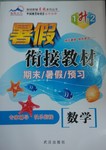阅读理解
Ig Nobel Prizes are awarded annually to those who have made strange scientific achievements.Ten prizes are given to people who have done remarkably goofy(可笑的)things-some of them admirable, some perhaps otherwise.
The prizes are presented at a gala(欢庆的)ceremony in Harvard University’s Sanders Theatre, and are sponsored(发起)by the scientific humor magazine ?Annals of Improbable Research.? The first Ig Nobels were awarded in 1991.Officially the prizes are granted for “performances that cannot or should not be repeated”.
Most winners-especially those who are being “honored” for things they should not have done-are embarrassed by the prizes, but the occasional winner cheerfully accepts and even attends the award ceremony.Though the ceremony is parody(拙劣的模仿)of the Nobel Prizes, true Nobel Laureates(获奖者)are on hand to award the winners with their honors.
The winners are selected by the Ig Nobel Board of Governors(董事会).The Board is composed of scientists(including several Nobel Laureates), science writers, athletes, public officials, and other individuals.By tradition, on the final day of deliberation(商议)a passerby is invited to help make the decision.The winners are invited to travel, at their own expense, to the gala awards ceremony.In recent years, half of more of the winners have participated in the ceremonies.
The 2005 Ig Nobel Prizes were awarded on October 6.Winners as follows(part):
Peace:Two scientists from the U.K., for a brain cell in a locust while that locust was watching the movie Star Wars.
Chemistry:Two American scientists for conducting a careful experiment to solve the longstanding scientific question:can people swim faster in syrup(糖浆)or in water?
Economics:Gauri Nanda of the Massachusetts Institute of Technology for inventing an clock that runs away and hides, repeatedly, thus guarantee that people go get out of bed, and thus theoretically adding many productive hours to the workday.



 暑假衔接教材期末暑假预习武汉出版社系列答案
暑假衔接教材期末暑假预习武汉出版社系列答案 假期作业暑假成长乐园新疆青少年出版社系列答案
假期作业暑假成长乐园新疆青少年出版社系列答案